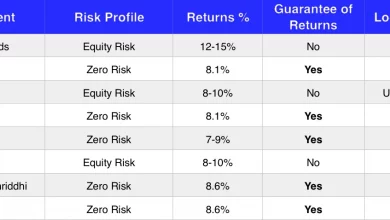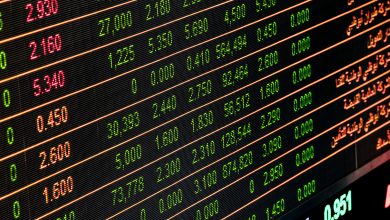Securities Transaction Tax on Intraday Trading: STT On Shares

If you are a beginner in intraday trading, you have probably already heard of securities transaction tax (STT) mentioned in your circles. So, what is STT, you may ask. This article breaks down everything you need to understand about STT on shares to ensure you are adequately informed before you start trading. Read on to find out.
What Is Securities Transaction Tax?
This particular tax was introduced in the Finance Act in 2004 as a measure against tax evasion. The government had realized that most investors are evading tax by failing to declare the correct amount of gains earned from the sale of shares and residential assets. Therefore, the government needed to revise policies and come up with a provision to curb this illegal practice. In this light, policymakers came up with various charges that investors must bear when operating a Demat account; brokerage charges which are the most popular, transaction cost, and STT, which most traders don’t completely understand.
Securities transaction tax applies to every purchase or sale of listed securities. The tax is levied at the source before the funds are released to the trader, therefore reducing chances of tax evasion since traders cannot provide fictitious figures. According to the STT Act, all transactions involving market equity and derivatives are liable for STT, making it a regulatory charge. As soon as the transaction is completed, the tax is deducted at the rate determined by the government, making collection easy, transparent, and effective.
STT is also chargeable on shares and securities sold to the public on offer. These taxes can be collected by a recognized stock exchange or person prescribed, such as a lead merchant banker for public offers. Once collected, these taxes should be remitted to the government on or before the 7th of the following month. Failure to do so attracts a levy on interest or penal consequences on the body or persons charged with the collection.
Scope Of ‘Securities’ On Which STT Is Charged
The term ‘securities’ is not explicitly defined in the STT act. According to the securities contract act, the description includes the following;
- Shares, debentures, scrips, debenture stock, bonds, and any other marketable securities of similar nature.
- Government securities of equity in nature, such as bonds.
- Securitized debt instruments.
- Rights or interest in securities
- Equity-oriented mutual funds.
- Derivatives such as options and futures.
How Does Securities Transaction Tax work?
STT is only levied on the transactions mentioned above as long as they are carried out on recognized stock markets. Let’s take a deeper look at each transaction to understand how the tax is charged.
For Equity
- STT on Intraday Trading
If intraday trading takes place and the transaction is closed within the day, the rate applied will be 0.025% on the seller only. Take a look at the following example;
Trader X buys 700 shares from XYZ limited at Rs. 1,000 at 9.15 AM on Monday and sells them at Rs. 1010 at 2.00 PM same day. The STT applicable will be 0.025%*700 (number of shares held) *Rs. 1,010 (selling price). The tax levied will be Rs. 176.75.
- STT on Delivery Trades
If a transaction is equity-based, then a tax rate of 0.1% is applied on both the buyer and seller sides of the trade. Take a look at the example below;
Assume an investor bought 100 shares of XYZ Ltd on 30th December 2021 at Rs. 1000 and sold them at Rs. 1005 on 2nd January 2022. The STT to be levied will be calculated as follows; 0.10%*Rs. 1,005 (selling Price) * 100 (the number of shares). The total tax charged will be Rs. 100.5.
For Futures and Options
- On Futures
The STT will be charged on the sell side of the transaction regardless of whether it’s intraday trading or regular trading. The rate applicable is 0.01%. Take a look at this example;
An investor sells a lot for 17,500 on 30th September. The total volume becomes 17,000*50 which equals 850,000. The tax payable in this case will be 0.01% of the amount, Rs. 85.
- On Options
Upon selling options, an investor is charged STT on the premium value on the sell-side. Here is an example for better understanding.
An investor sells a call option at a strike price of Rs. 700 for each of the 10,000 options. The STT charged on the transaction will be calculated as follows; Lot size* Rs. 700 * 0.05%.
Summary Table
Here is a table summarizing how STT is charged on different securities defined in the securities act.
| Taxable securities | STT rate | Party Charged | Value on which STT is charged |
| Purchase of equity share (delivery based) | 0.10% | Buyer | Purchase price |
| Sale of equity share (Deliver based) | 0.10% | Seller | Selling price |
| Oriented mutual funds | 0.001% | Seller | Selling Price |
| Sale of an Option | 0.017% | Seller | Option premium |
| Sale of Futures | 0.01% | Seller | Agreed upon price on trading |
Key Takeaways
- Securities transaction tax (SST) is levied on securities trades such as equity and derivatives such as futures and options.
- STT is a tax collected at source (TCS), and the securities transaction tax act governs it.
- STT does not apply to commodities and trading currencies.
- The government determines the STT rates applicable, and they vary from cash, equity, and derivatives transactions.
- STT is only levied on transactions performed on recognized stock markets such as the National Stock exchange (NSE) and the Bombay Stock Exchange (BSE).




